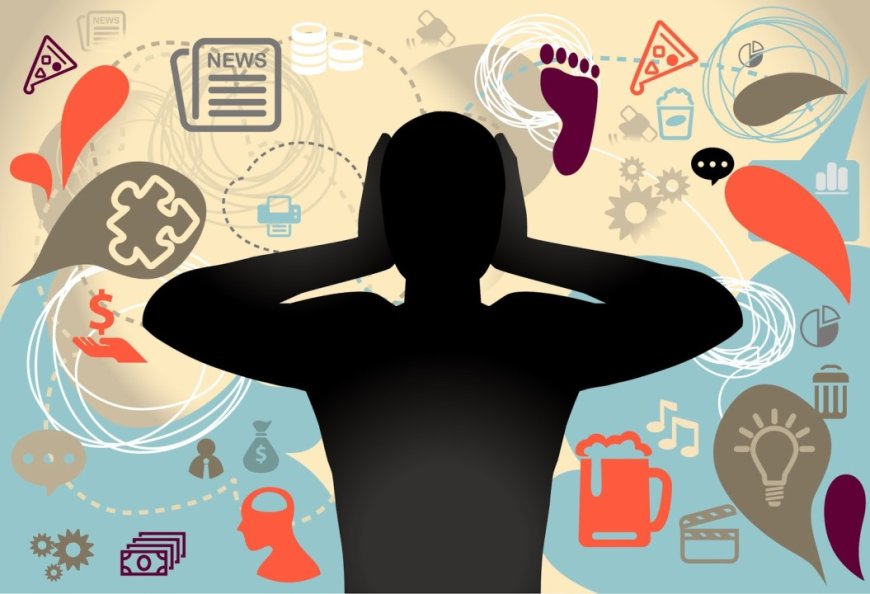Mental Fitness in a Digitally Distracted World: How to Reclaim Your Focus and Well-Being
Struggling with focus in a tech-driven world? Discover practical ways to boost mental fitness, reduce digital distractions, and reclaim your well-being.

In today’s hyperconnected world, we are constantly bombarded with notifications, emails, and endless social media feeds. While technology has made life more convenient, it has also led to increased distractions, reduced attention spans, and rising mental fatigue.
The result? A society that is more digitally engaged but mentally drained. Prioritizing mental fitness is no longer just an option—it’s a necessity for maintaining productivity, emotional well-being, and overall health.
So, how can we reclaim our focus and strengthen our mental resilience in an age of digital distractions? Let’s explore.
What Is Mental Fitness and Why Does It Matter?
Just like physical fitness strengthens the body, mental fitness strengthens the mind. It involves:
✅ Cognitive sharpness – The ability to focus, think critically, and process information efficiently
✅ Emotional resilience – Managing stress, anxiety, and negative emotions effectively
✅ Mindful awareness – Being present in the moment and reducing mental clutter
Mental fitness is crucial for productivity, creativity, and emotional balance. Without it, we become more prone to stress, burnout, and decision fatigue.
? According to Harvard Business Review, multitasking and digital distractions reduce efficiency by up to 40%, making it harder to retain information and complete tasks effectively.
The Impact of Digital Distractions on Mental Health
Technology has reshaped how we think, work, and interact—but at a cost. Some key ways digital overload affects mental health include:
1. Shortened Attention Spans
With constant notifications and quick dopamine hits from social media, our ability to sustain deep focus is declining. Research from Microsoft found that the average human attention span has dropped from 12 seconds in 2000 to just 8 seconds today.
2. Increased Anxiety and Stress
The pressure to stay constantly connected—whether responding to messages, emails, or news updates—leads to mental fatigue and heightened stress levels.
? A study published in JAMA Psychiatry found that excessive smartphone use is linked to higher levels of anxiety and depression (source).
3. Poor Sleep Quality
Blue light from screens disrupts melatonin production, making it harder to fall asleep. Doomscrolling before bed overstimulates the brain, leading to restless nights and lower energy levels the next day.
? The National Sleep Foundation warns that screen time before bed reduces sleep quality and increases insomnia risk (source).
4. Reduced Emotional Intelligence
Face-to-face conversations help us develop empathy, patience, and deep social connections. But excessive digital interactions can make us more reactive, less patient, and prone to misunderstandings.
How to Build Mental Fitness in a Digitally Distracted World
To combat the negative effects of digital overload, it’s essential to incorporate mental fitness habits into daily life. Here’s how:
1. Practice Digital Minimalism
Being intentional about technology use can significantly improve mental clarity. Try these strategies:
✅ Turn off non-essential notifications – Only allow alerts for critical tasks
✅ Use the “Do Not Disturb” mode – Schedule screen-free blocks of time
✅ Unfollow accounts that trigger stress or comparison – Curate a healthier digital environment
? Cal Newport highlights that reducing unnecessary screen time leads to higher focus, better mental well-being, and stronger real-world connections.
2. Strengthen Your Attention Span
Building mental endurance takes practice. Incorporate these focus-boosting techniques:
- The Pomodoro Technique: Work for 25 minutes, then take a 5-minute break
- Single-tasking: Focus on one task at a time instead of juggling multiple things
- Mindful scrolling: Set time limits for social media rather than endlessly browsing
? Studies from the American Psychological Association confirm that multitasking reduces efficiency and increases mental stress, making focused work more productive.
3. Prioritize Restorative Activities
Replacing screen time with brain-nourishing activities can significantly enhance mental fitness:
✅ Reading physical books – Boosts cognitive function and deep thinking
✅ Spending time in nature – Reduces stress and increases creativity
✅ Practicing mindfulness – Meditation, deep breathing, or journaling to clear mental clutter
? Research from Stanford University shows that spending time in nature lowers stress levels and improves mental clarity.
4. Cultivate Stronger Real-Life Connections
Social media gives the illusion of connection but lacks deep, meaningful interaction. Strengthen real-world relationships by:
- Scheduling phone-free meetups with friends and family
- Engaging in active listening instead of scrolling during conversations
- Practicing gratitude and kindness to improve emotional well-being
? According to Harvard’s longest-running study on happiness, strong relationships are the biggest predictor of long-term well-being—not social media likes or online validation.
5. Develop a Tech-Free Nighttime Routine
Quality sleep is non-negotiable for mental fitness. Improve sleep hygiene with:
✅ A no-screen rule 1 hour before bed
✅ Reading or meditating instead of scrolling
✅ Using an actual alarm clock instead of your phone
? The Cleveland Clinic states that reducing screen time at night improves sleep quality, reduces stress, and enhances cognitive function (source).
Final Thoughts: Take Back Control of Your Mental Fitness
In a world where digital distractions are constant, prioritizing mental fitness is one of the most powerful steps you can take to reclaim your focus, energy, and emotional well-being.
By practicing digital minimalism, strengthening attention spans, prioritizing real-life interactions, and improving sleep habits, you can build a stronger, more resilient mind—one that thrives in the modern digital era.
The key is intentionality—using technology as a tool rather than letting it control you.
How will you start prioritizing your mental fitness today?
What's Your Reaction?
 Like
0
Like
0
 Dislike
0
Dislike
0
 Love
0
Love
0
 Funny
0
Funny
0
 Angry
0
Angry
0
 Sad
0
Sad
0
 Wow
0
Wow
0



















































